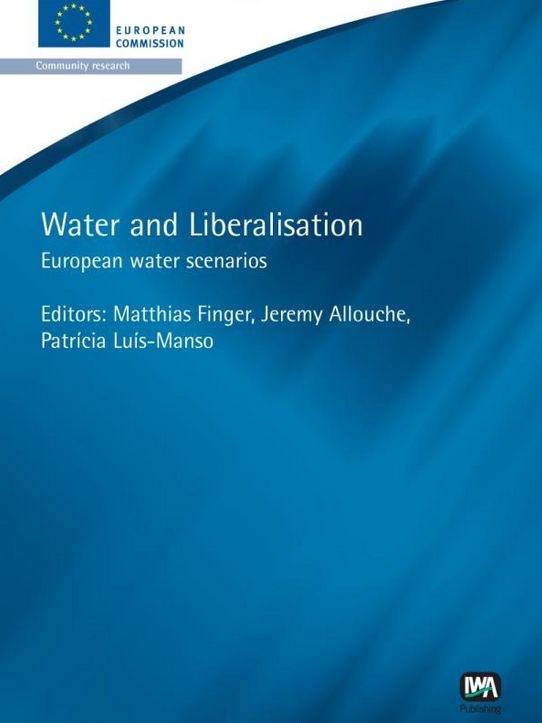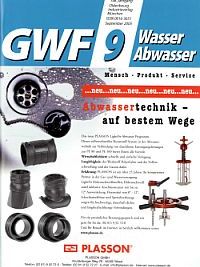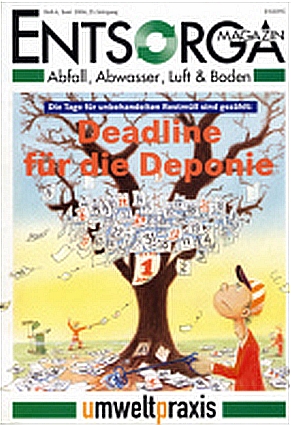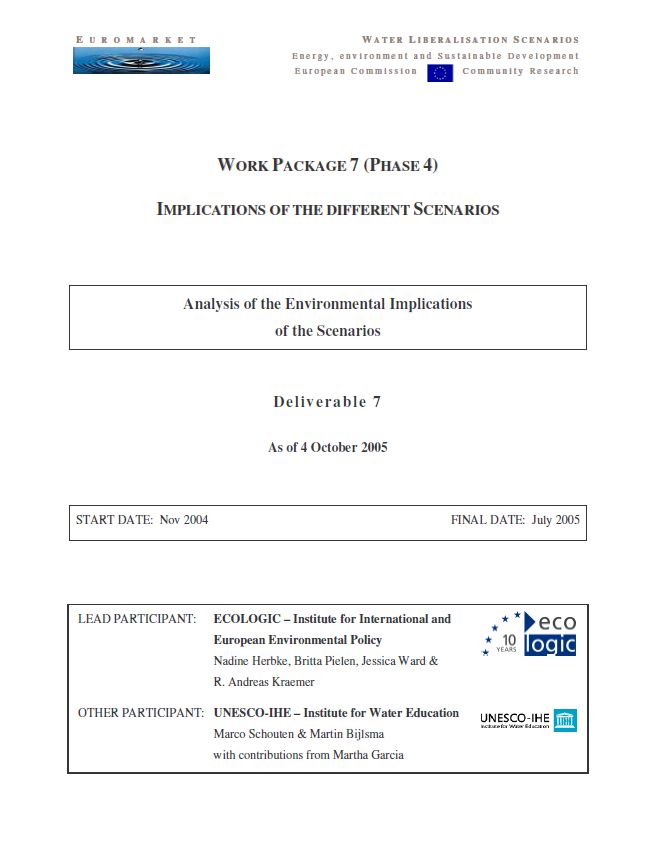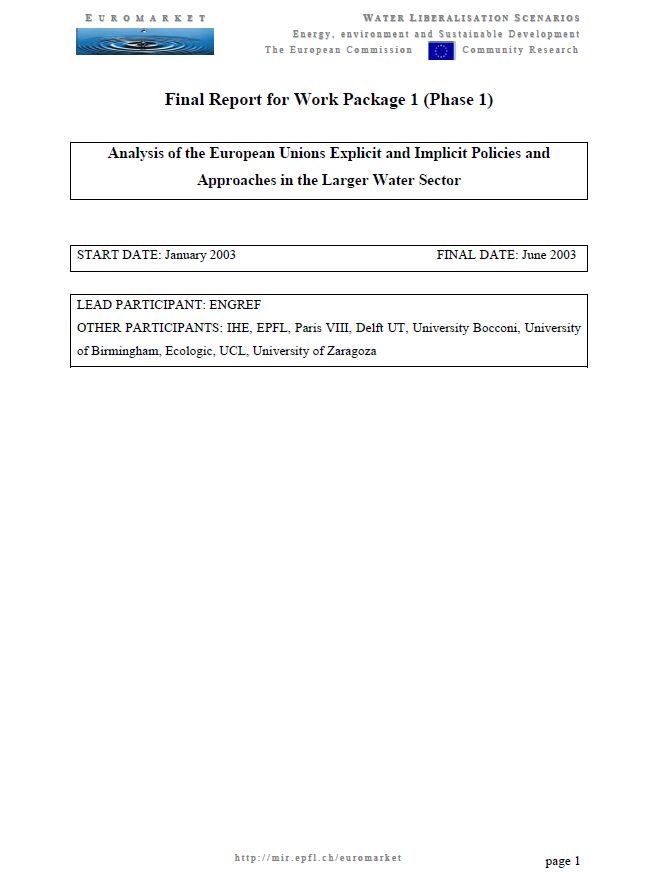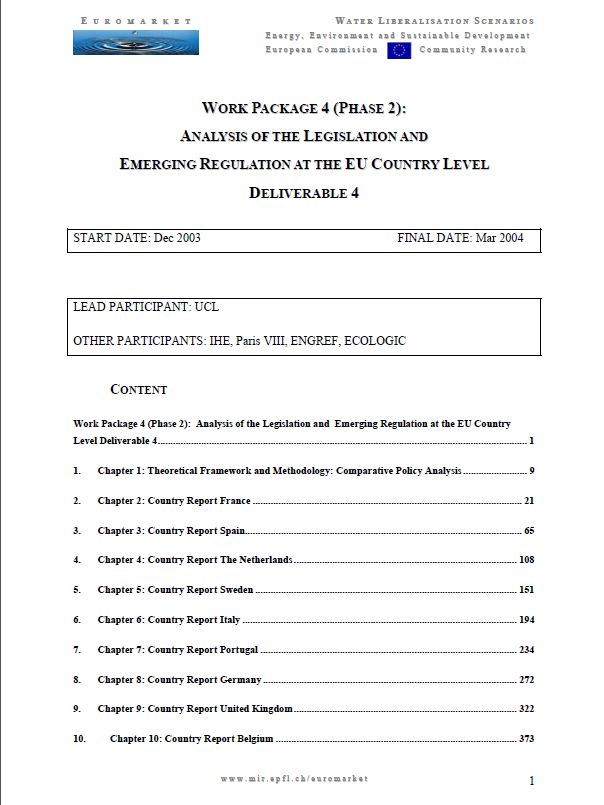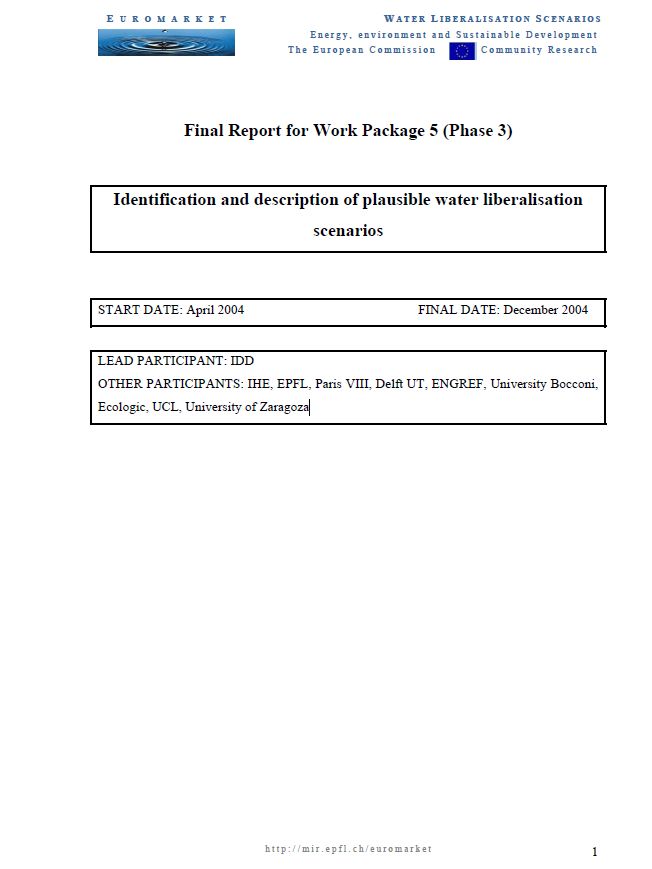The future of the water sector in Europe has been increasingly at the heart of political debates. Potential evolution of the water supply and sanitation (WSS) sector had not, however, been the subject of in-depth studies. The EUROMARKET project filled this gap by analysing a selection of scenarios for the evolution of the European WSS sector, ranging from delegation contracts to community management, and investigating their social, economic, environmental and institutional implications.
Project Objectives
The project’s focus was laid on the way in which the European water sector may develop in the foreseeable future. In this framework, the project first examined explicit and implicit policies of the EU in the water and sanitation sector. Up to then, the EUROWATER study - Institutional Mechanisms for Water Management in the Context of European Environmental Policy, conducted under the Fourth Framework Programme, provided the most comprehensive in-depth analysis of the European water market. This study needed an update, in particular with regard to private sector participation as well as regulation and legislation.
At the heart of the Euromarket project is the identification and evaluation of possible water scenarios with a varying degree of private involvement and of their driving forces. These scenarios, including delegation contracts, outsourcing, regulated monopoly, direct public management and community management, were assessed on the basis of their social, economic, environmental, legal and institutional implications. Finally, the project outlined the potential choices national and in particular EU policy-makers will have to make in order to establish a more comprehensive and integrated water management policy.
Output
The conclusions of the project did not present one scenario as being more advisable than another but rather highlighted the scenarios’ potential advantages and risks on. Clearly, the diversity of management forms and contexts present in the European Union could not and should not be replaced with a single one. The project rather aimed at informing the decision-making process by analysing the scenarios and their social, economic, environmental and institutional implications.
The results of the Euromarket project were presented at the final conference which was held in Lausanne on 14 December 2005. The conference aimed at creating a forum of discussion among research and policy communities on the evolution of the water sector in Europe. The presentations are available for download.
Downloads
- Deliverable 1 "Analysis of the European Union’s Explicit and Implicit Policies and Approaches in the Larger Water Sector" [pdf, 1 MB, English]
- Deliverable 4 "Analysis of the Legislation and Emerging Regulation at the EU Country Level" [pdf, 3.5 MB, English]
- Deliverable 5 "Identification and Description of Plausible Water Liberalisation Scenarios" [pdf, 2.5 MB, English] with Annex A "Scenario Building" [pdf, 1.5 MB, English] and Annex B "Liberalisation Scenarios" [pdf, 2.5 MB, English]
- Deliverable 7 "Analysis of the Environmental Implications of the Scenarios" [pdf, 1.2 MB, English]
The Euromarket project acknowledges financial participation from the European Community under the Fifth Framework Programme for Research, Technological Development and Demonstration Activities for the Specific Targeted Research Project EUROMARKET EVK1-CT-2002-00113.




